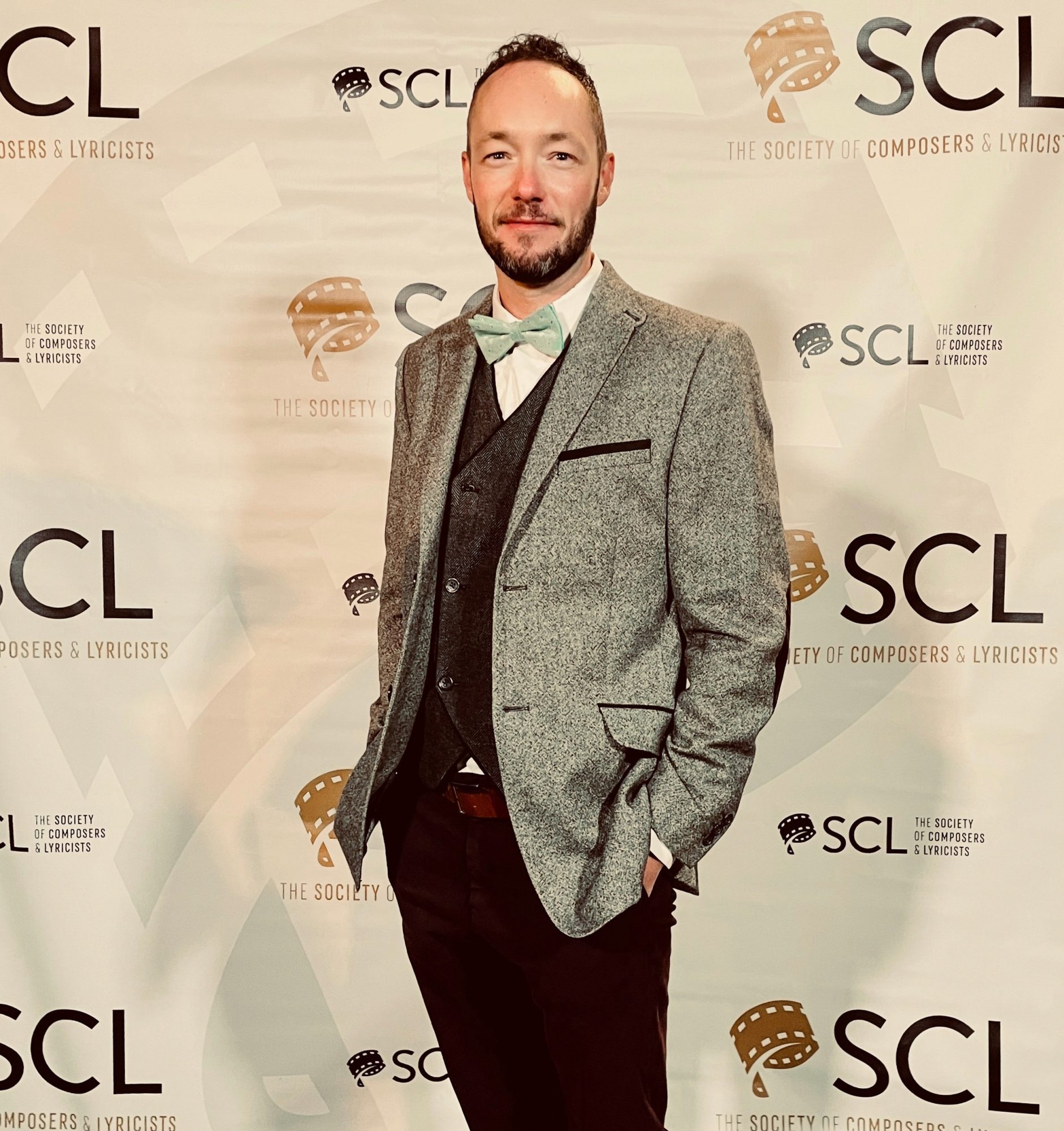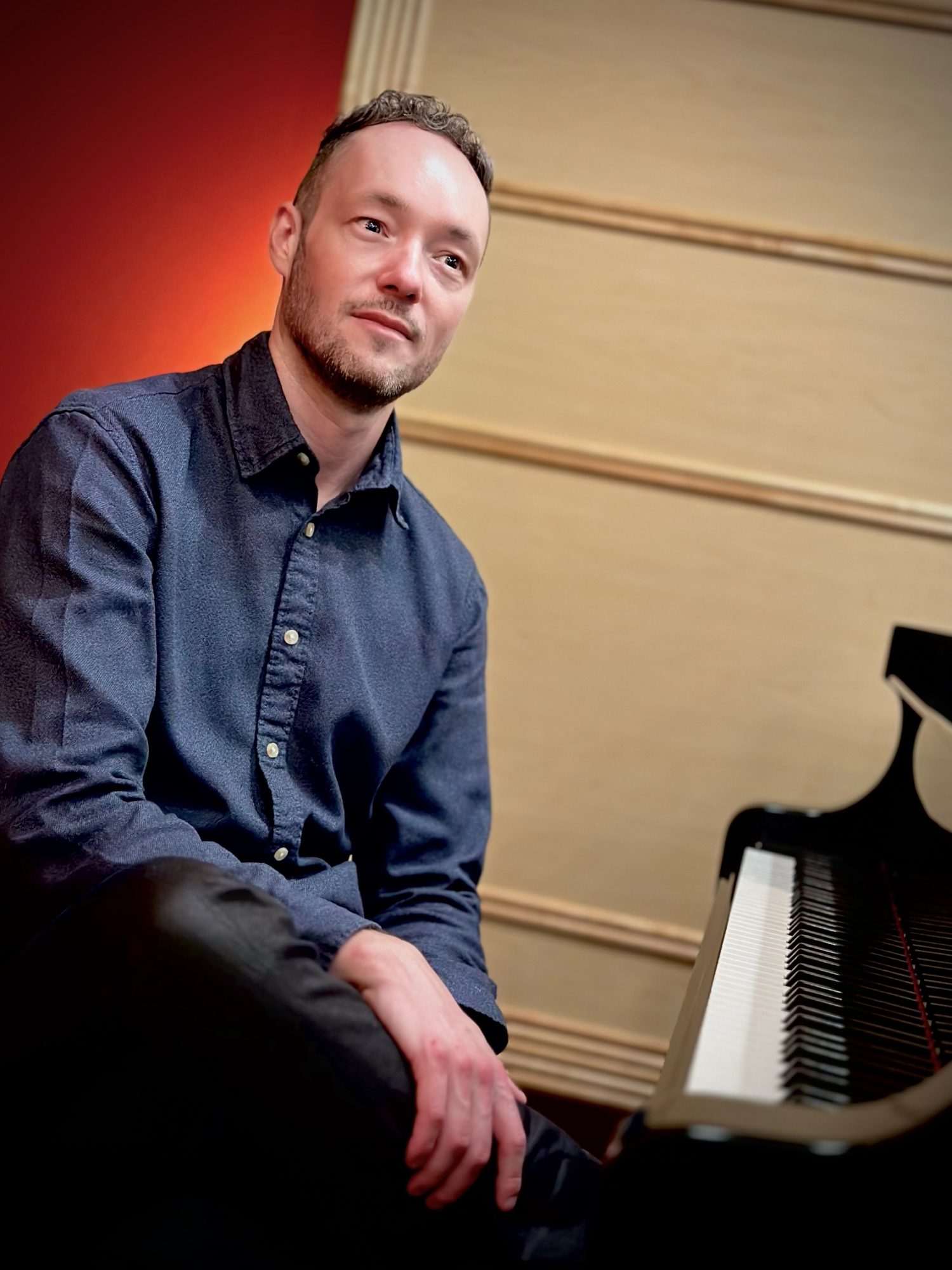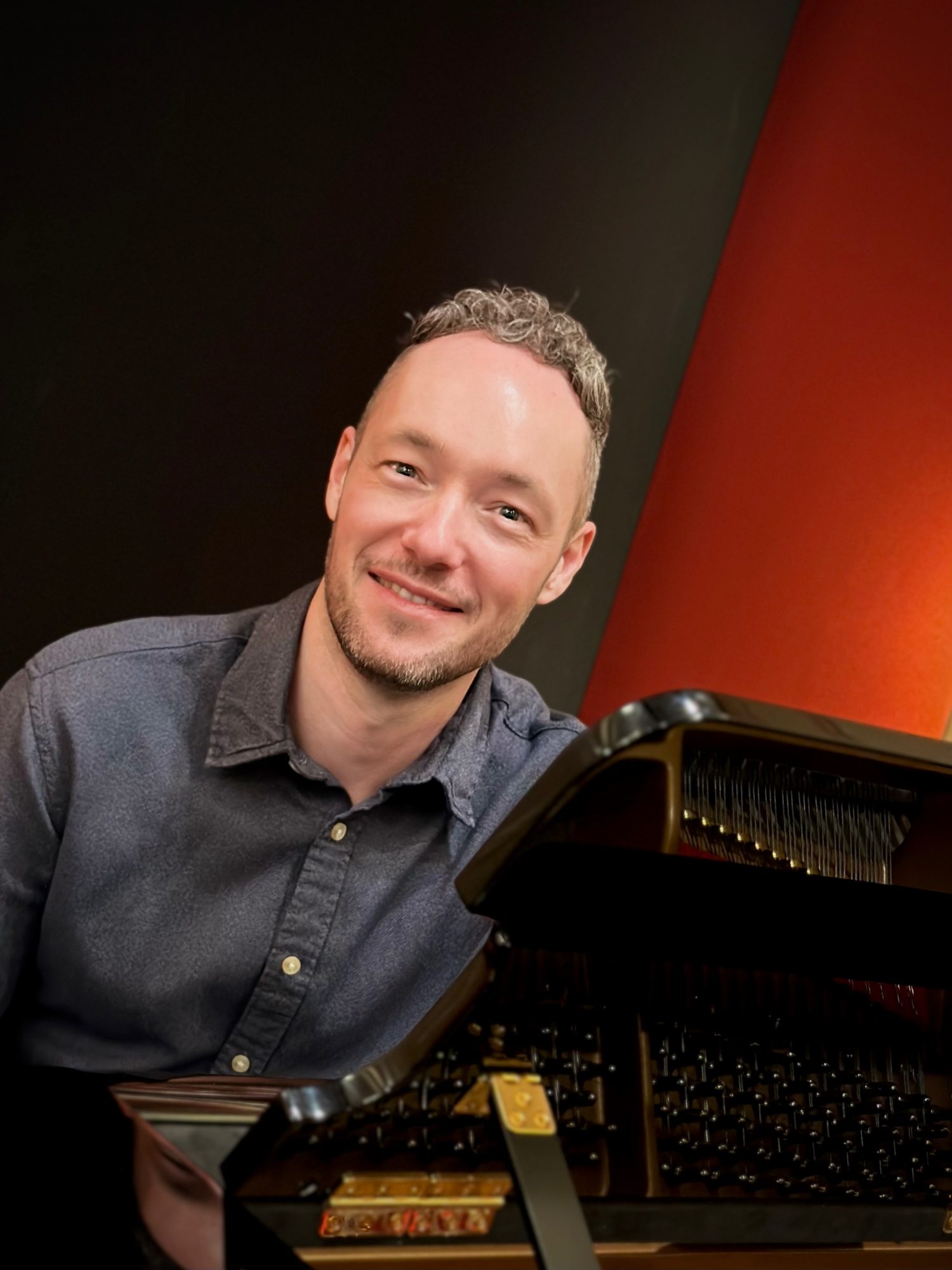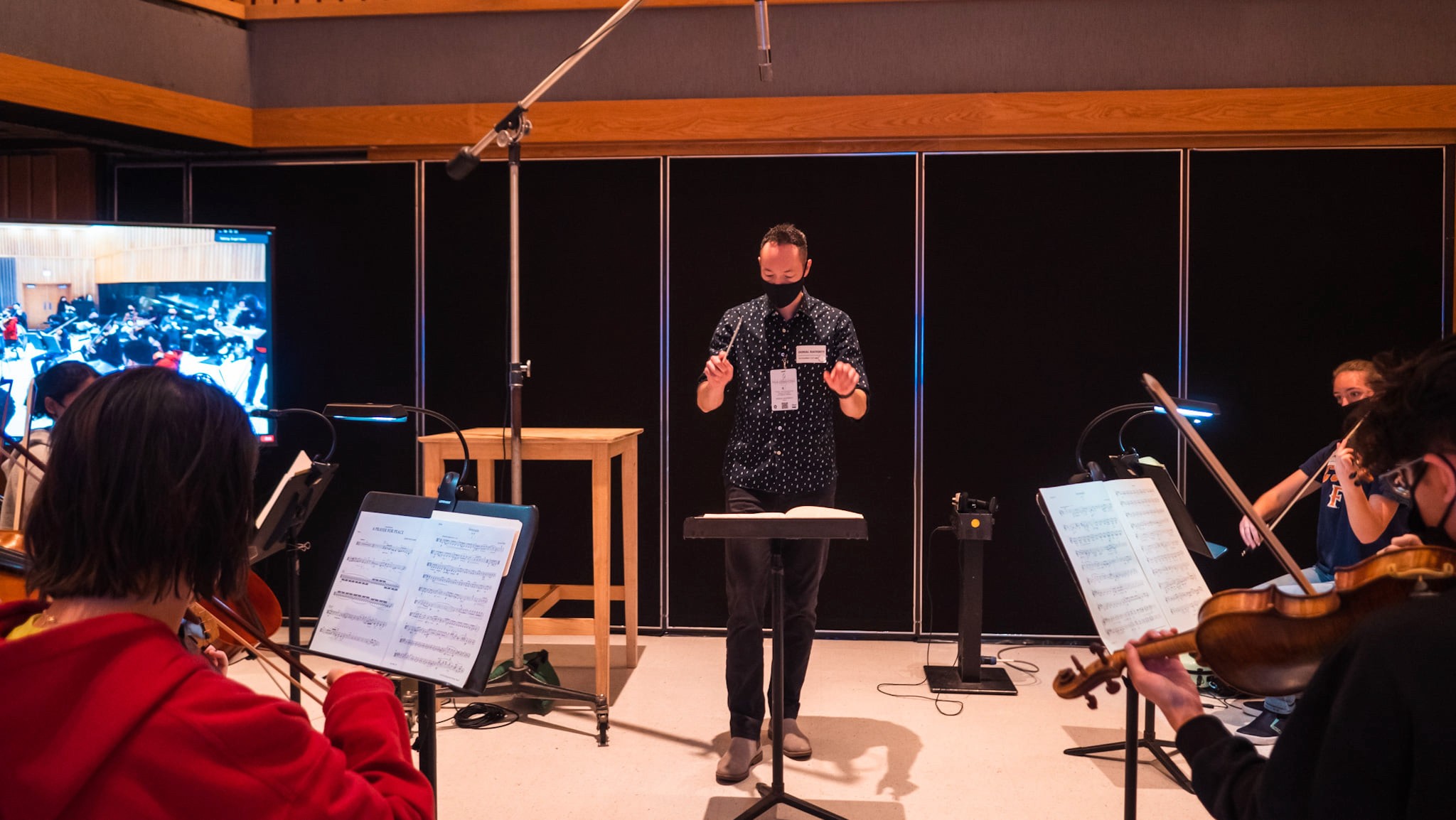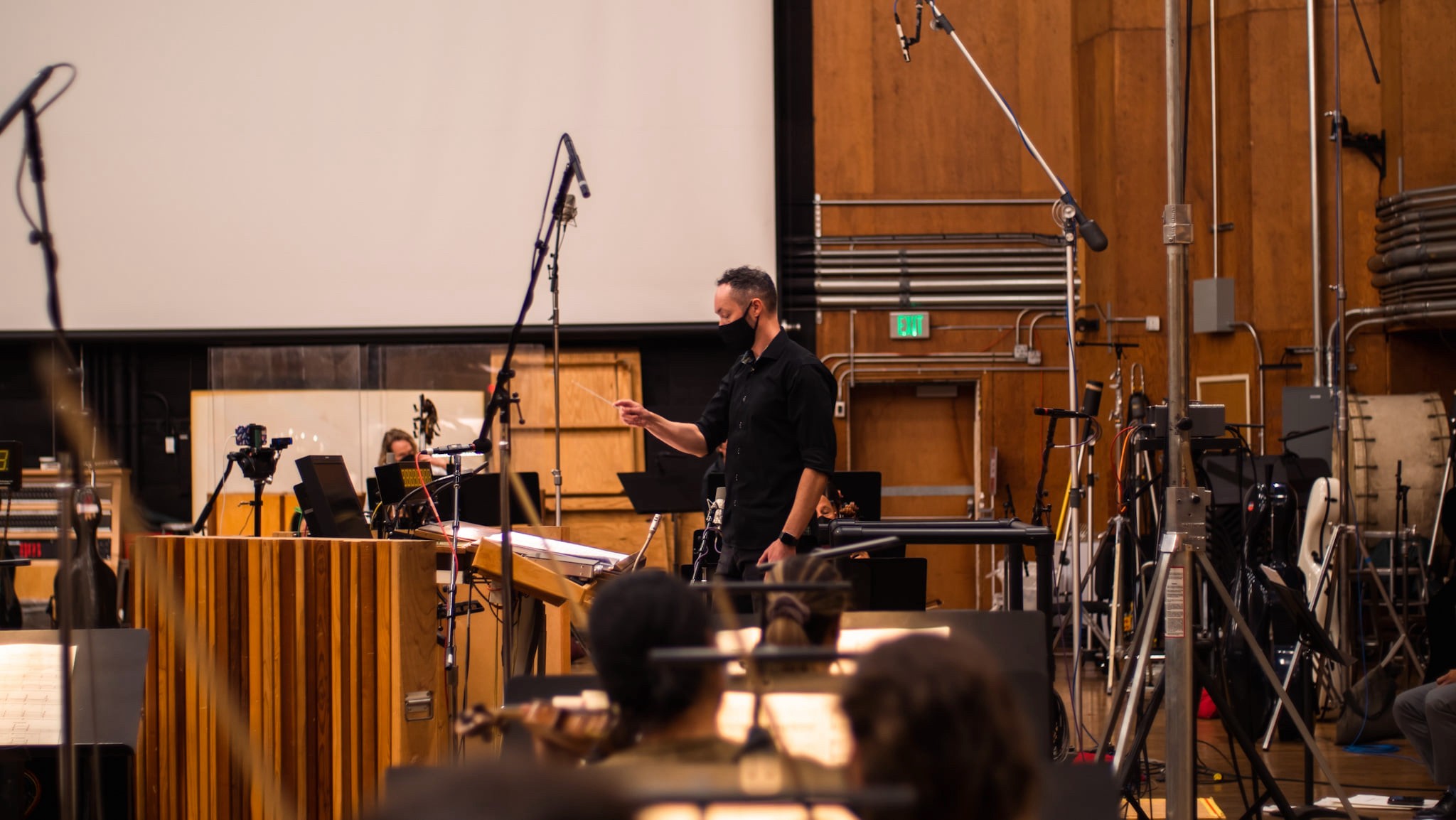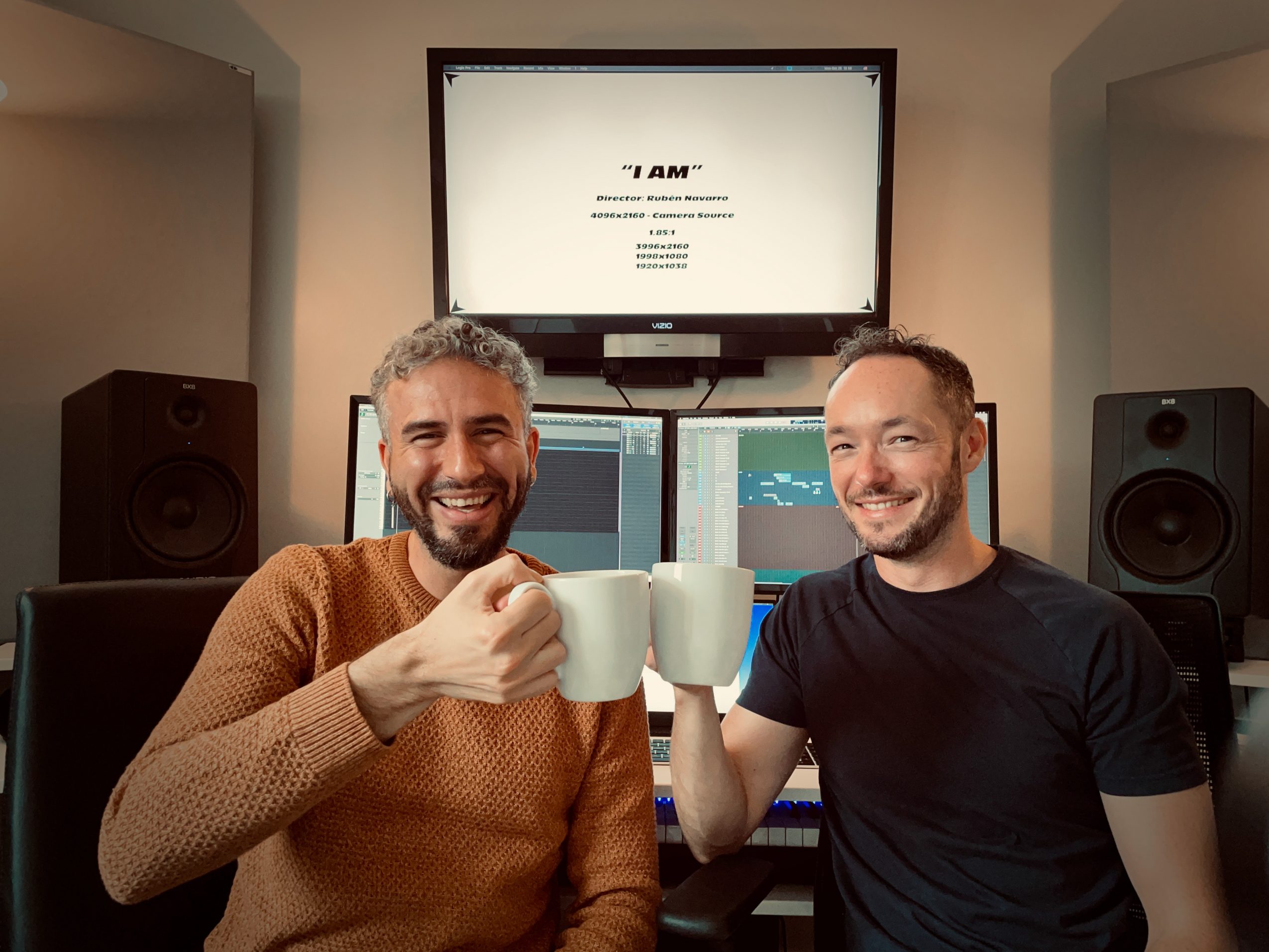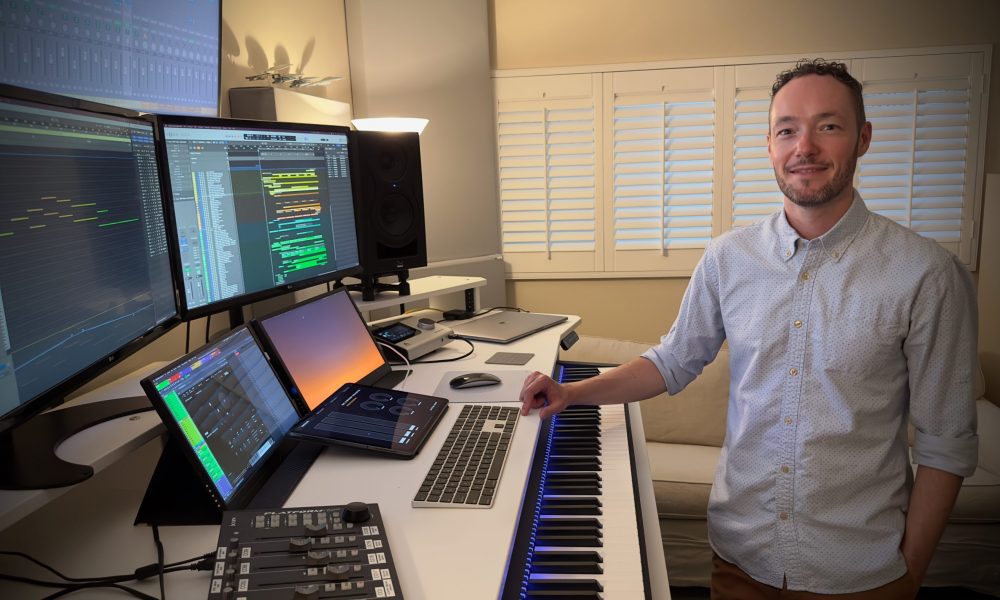

Today we’d like to introduce you to Dónal Rafferty.
Hi Dónal, we’re thrilled to have a chance to learn your story today. So, before we get into specifics, maybe you can briefly walk us through how you got to where you are today?
I was born in Dublin, Ireland in the 1980s. My family weren’t wealthy, and music education was generally off the menu at the public schools that I attended. My musical “journey” began with me listening to classical music records on my grandad’s stereo when I was six years old. I remember loving Prokofiev’s ‘Peter and The Wolf’, and Britten’s ‘A Young Person’s Guide to the Orchestra’ in particular, which I’d listen to for hours on end! At age seven, I was lucky to be enrolled in extra-curricular music classes at a community-funded local music school. I took piano lessons there after school and theory classes on Saturday mornings. At the same time, I was enrolled in The Palestrina Choir [https://www.palestrinachoirdublin.com], which is probably where I received my greatest musical training. The choir sang High Latin Mass at the Pro-Cathedral [https://www.procathedral.ie] in Dublin every Sunday and Vespers each Friday. I sang soprano for the majority of my eight years with them (alto in my final year) and developed a deep understanding of melody and harmony through performing a broad swathe of choral music composed between 1500 and 1980, with a focus on early Renaissance polyphony (Palestrina, Lassus, Byrd, Tallis, etc.). Besides our regular church gigs, the choir traveled the world attending Pueri Cantores [https://www.puericantores.org] conventions each Summer, staged Christmas concerts at The National Concert Hall [https://www.nch.ie] in Dublin, performed live on RTÉ [www.rte.ie] TV and radio, and even accompanied Perry Como at his concert in Dublin!
By the time I graduated secondary school, I’d completed the Associated Board of the Royal Schools of Music (https://www.abrsm.org) 8-grade curriculum in piano and music theory, and partially on clarinet. However, given that I was a good student in math and science in “regular” school, I was encouraged to pursue an undergraduate degree that leveraged those strengths to prepare myself to get a “real job”. Doing my best to be a responsible young adult (and study a field that interested me), I settled on studying Engineering and attended Trinity College Dublin [https://www.tcd.ie] to earn a degree in Mechanical & Manufacturing Engineering. After completing a diploma in music theory extramurally during my initial year at Trinity, I realized I had to put my musical endeavors aside to ensure my success at Trinity wasn’t jeopardized. After graduating with an Engineering degree, I was awarded an internship with Volvo in Sweden, so off I went! However, in my free time, music found me again and I began composing for the first time. I was soon captivated by it and over a few months, composed a four-movement string quartet. It was my first “proper” composition! Toward the end of my internship in Sweden, I arrived at the decision to make the most of my years of music training and get a Music degree. I reached out to several Universities back in Ireland and thankfully was offered a place in the 2nd year of a Music Bachelor’s program (being granted an exemption from 1st year due to my existing music qualifications) at the National University of Ireland at Maynooth [https://www.nuim.ie] beginning in the Autumn of 2005.
If studying Engineering at University was work for me (which it was much of the time!), studying music felt like play! I also resumed piano tuition and got my diploma, and taught piano to students of my own to support myself. When I graduated top of my class in 2007, there was no doubt that I wanted to pursue postgraduate studies in composition; it felt like I’d only got started. I was accepted into King’s College London [https://www.kcl.ac.uk] for their Master of Music programme. After an amazing year in peerless London as a music student, I wanted nothing more than to continue studying, but student debt had caught up with me and it wasn’t realistic financially. After a final ‘student’ summer spent at the Aldeburgh Music Festival [https://brittenpearsarts.org/visit-us/snape-maltings] as a Hesse student [https://brittenpearsarts.org/hesse-student-scheme] in 2009 (where I managed to compose and premiére a new chamber composition), I headed back to London to find a job.
I was invited to work with the London Chamber Orchestra [https://www.lco.co.uk] to manage their new music initiative, ‘LCO: Explore’, which had been managed the prior year by my classmate at King’s, Isobel Waller-Bridge. Their ‘Explore’ project focused on exploring links between music and other art forms and offered student composers the opportunity to compose a short work for the orchestra, several of which would be selected by jury to be performed and recorded. The year I managed the project, we explored architecture and music, and it resulted in several wonderful compositions inspired by iconic buildings around London. While working with LCO, I was also working on my own composition commissions and premiered new works in the UK and Ireland. In the US, I got connected with musical organizations based in Charleston, South Carolina through family I have there, and arranged Celtic music for the Charleston Symphony Orchestra [https://charlestonsymphony.org] to perform and premiered choral works with the Taylor Festival Choir [www.taylorfestivalchoir.org]. With my work with LCO wrapped up successfully after the Summer of 2010, I successfully landed a job at Google.
Working with Google unsurprisingly resulted in a decreased focus on music, but I continued to engage in occasional musical activities with other musicians there and also sang with a choir in London. Eventually, the opportunity arose to relocate to the San Francisco Bay Area with Google in 2013, and I jumped on it! After relocating to California, I continued to progress with my career at Google but found myself contemplating what I could be doing in the world of composing more often. In 2017, I produced music for a product launch video at Google, which stoked my compositional interests again, and then in 2018, I was invited to compose music for a children’s theater production back in Dublin (‘The Queen Who Canceled Christmas’), which fully awakened my passion for composing again! Now that I was situated so close to Hollywood itself – I began to wonder: could composing for the screen be a realistic career prospect? I began taking classes through Berklee School of Music Online [https://online.berklee.edu], studied scores, and read musical analysis and orchestration books whenever I could find the time.
Eventually, in 2019, I made the difficult decision to step away from my career in tech and give being a media composer a real shot. I left the Bay Area and moved out to the Sierra foothills with my partner Mark (whom I’d met in San Francisco in 2018), where I could more affordably give myself room to pivot in my career. There, I was able to set up a home studio and really hunker down on practicing and finding opportunities to work as a media composer. I joined Film Independent [https://www.filmindependent.org], Sundance Collab [https://collab.sundance.org], and attended local film festivals around Northern California, all of which got me connected with filmmakers. I leveraged my skills in drone photography and video production to produce video adverts for local businesses in which I could feature my own “production music” compositions. In 2019, I self-produced a short film compiled from aerial photography I’d captured on a trip to Iceland and scored it with a symphonic composition (‘A Land of Ice & Ash: Iceland’, viewable on my YouTube channel). I was a prize winner in the Indie Film Music Contest [https://indiefilmmusiccontest.com] in 2020 which gave me confidence in my musical storytelling abilities. Eventually, in 2021, I convinced Mark to move to Los Angeles with me next, where I aimed to work as an assistant with an established media composer whom I could learn from and gain experience on scoring larger productions. We settled in LA in the Summer of 2021.
In LA, I found a welcoming community in the Society of Composers & Lyricists [https://thescl.com]. I scored my first two short films, ‘I AM’ (by Rubén Navarro, whom I’d connected with through Film Independent) and ‘The Merger’ (by Nick Anderson & Skyler Henry, whom I’d met through Sundance Collab). I also released an album, ‘Through The Maelstrom’ (under the pseudonym EX1MUS [https://www.ex1mus.com]), which helped me hone and demonstrate a new cinematic musical style. In 2022, I was a Fellow of the Los Angeles Film Conducting Intensive [https://www.lafci.org], where I studied with Angel Velez and Conrad Pope and conducted the Hollywood Studio Symphony at Fox Studios in LA (which was truly a dream come true!). As my first year in LA came to a close, I secured an assistantship with composer Edward Shearmur. Over the last year, I’ve learned a ton working with him on scoring an upcoming feature film for Netflix. I’m also very grateful to have benefitted from Fil Eisler welcoming my involvement on his own scoring projects (‘Outer Banks’, ‘Fire Country’, ‘Fast Charlie’) since he’s based at the same studio. I recently wrapped up scoring a documentary short ‘The Invisible Homeless’ (which will air on PBS soon), and another short film ‘Room 107’ (directed by Steve Anderson & Leo Imaz).
Alright, so let’s dig a little deeper into the story – has it been an easy path overall and if not, what were the challenges you’ve had to overcome?
The road for me so far has been neither smooth nor direct, but that’s part of what makes me unique.
I think the most significant struggle for any young person establishing a career as a composer is gaining financial security. As a society, we’ve set the expectation that college graduates can go out into the world and find work that pays a living wage, but when it comes to being a composer, that’s often not true. Firstly, there’s a concerning mindset of media producers not being willing to compensate composers fairly for their work, particularly those composers who are starting out. Even for fairly compensated composers, it can take years before they can make a living from composing alone. I think my road to becoming a composer reflects this challenge; I’ve had to leverage other skills in order to “finance” my journey. I choose to view my longer indirect journey as an asset though. I’ve gained an understanding of working in different industries and had the opportunity to deal with so many different types of people along the way, and my life has been enriched as a result. When it comes to scoring visual media, it’s important to be able to understand and empathize with the characters you’re musically expressing, supporting, and/or portraying, so the more experience one has to draw from, the better.
Another struggle I faced was actually finding the “path” to becoming a media composer. Growing up in Ireland, there was no clear path to becoming a composer for visual media and no opportunity domestically to specialize in that field at third-level education. I was only exposed to media composing as a career when I moved to the UK. So I think my journey reflects not only my growing awareness of media composing as a career but the emergent state of media composing as an industry and the educational opportunities therein, particularly in Europe. Education prospects for European youngsters with aspirations of being media composers are much better now, with Berklee having a film scoring programme in Valencia, Spain [https://valencia.berklee.edu/], and the Film Scoring Academy of Europe [https://www.filmscoringacademyofeurope.com/].
Thanks – so what else should our readers know about your work and what you’re currently focused on?
As a music composer and producer, I primarily score visual and theatrical media but also produce my own music projects that I release to the world.
In terms of media scoring, I’m particularly interested in working on projects that focus on environmental activism and social justice. As an LGBTQ+ person and emigrant, I tend to have an affinity with those on the fringes of society, those attempting to drive change, and minority voices in general. In terms of the kind of music for media I write, I strive to be adaptable, so style and tone can vary widely; I always strive to find a sonic world that’s fresh but fitting. I’ve composed anything from aggressive, bombastic tribal drumming for ’The Merger’, to gentle, ambient, ethereal soundscapes for ’Room 107’, to cacophonous, avant-garde orchestral cues for ’I AM’. So far, I’m probably most proud of my score for the short film ‘I AM’. Working with Rubén [Navarro] really pushed me in a new direction creatively – he wasn’t willing to settle for anything “generic” or “traditional” sounding when it came to his score – which forced me into new, uncomfortable territory as an artist. And ultimately, it paid off. Those are the kinds of creators you want to work with. Having independently scored several short films and theater productions and assisted other composers on feature films and TV shows, I’ve acquired the experience and confidence I need to tackle larger projects.
When it comes to my “standalone” music, my first album ‘Through The Maelstrom’ (EX1MUS) was an exploration in alluding to (rather than telling) a story through music alone, which is an approach I find challenging and motivating, not to mention it being artistically freeing to do aside from scoring. The album also gave me the opportunity to write in a big, epic, dramatic, orchestral style that I find exciting and expressive. In future projects, I aim to more deeply delve into the Celtic elements of my heritage and leverage my expertise in vocal and choral music. Exploring these elements within the field of symphonic orchestral music is something that excites and motivates me. Storytelling is such a cornerstone of my native Irish culture, and there are many stories that I want to tell through music.
If you had to, what characteristic of yours would you give the most credit to?
Curiosity. It’s my driving force. I am genuinely curious about people, their stories, and what I can learn from them. This fuels my drive to listen and learn. I hope and aim to always be curious since the people I admire and find most interesting (and fun to be around) are those who exhibit a deep curiosity and humility in being open to learning, regardless of their age or experiences. My curiosity drives my compositional practice too of course; I’m driven to find new sounds and new ways to tell stories through music. And my curiosity has propelled me in times when fear could have held me back; it has helped me migrate across the world alone to pursue my dreams, find love, and begin to realize my potential as a person and artist.
Contact Info:
- Website: https://www.donalrafferty.net
- Instagram: @donal.rafferty.music
- Facebook: https://facebook.com/DonalRaffertyMusic
- Linkedin: https://www.linkedin.com/in/donalrafferty/
- Twitter: @composerdonal
- Youtube: https://youtube.com/DonalRaffertyComposer
- SoundCloud: https://soundcloud.com/donalrafferty
